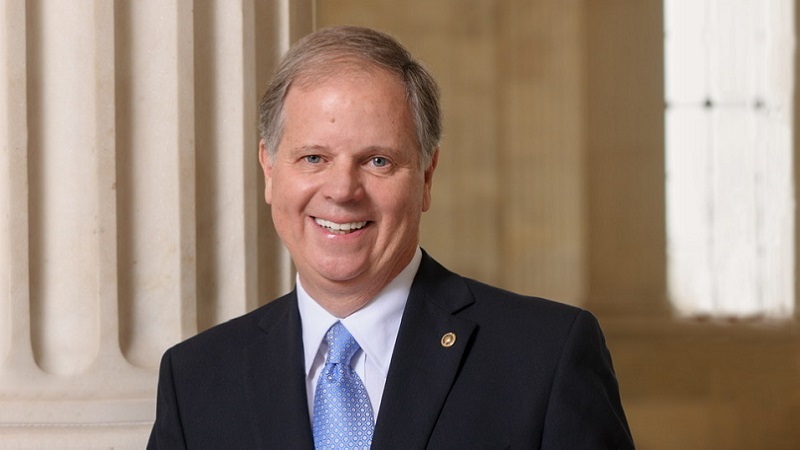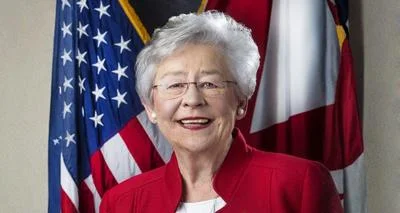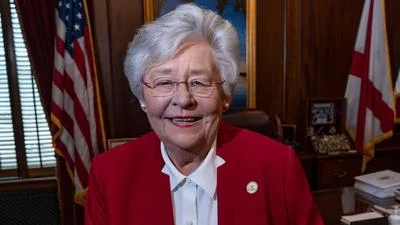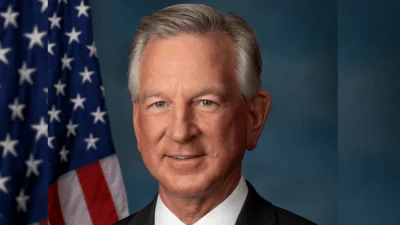Sen. Doug Jones | jones.senate.gov
Sen. Doug Jones | jones.senate.gov
Alabama senators will be in the midst of one of the next political battlegrounds linked to the COVID-19 pandemic: Liability concerns for businesses as a flood of lawsuits threatens to swamp courts, potentially keeping companies from reopening.
On May 4, The Wall Street Journal published a story saying the issue would be addressed in Congress.
“Senate Republicans’ effort to shield companies from liability during the coronavirus pandemic sets the stage for a showdown with Democrats, as allies of businesses and labor fight over the terms under which the economy will emerge from its partial shutdown,” the paper reported.

Sen. Richard Shelby
| Senate Appropriations Committee
The WSJ article said owners fear lawsuits from employees at meatpacking plants, grocery stores and other businesses.
The Washington Post reported on May 1 that 771 liability lawsuits had been filed against hospitals and senior-living facilities, airlines and cruise lines, fitness chains and the entertainment industry according to a report from Hunton Andrews Kurth, an international law firm tracking pandemic-related cases. Some were class-action suits.
Senate Majority Leader Mitch McConnell, himself locked in a tight battle for re-election, told reporters on May 4 that the Senate will take up legislation on the issue.
“We are working on a narrowly crafted liability protection bill,” the Kentucky Republican said. “It will not protect somebody from gross negligence.”
He was even more direct during an April 27 appearance on Fox News Radio.
“Before we start sending additional money down to states and localities, I want to make sure that we protect the people we’ve already sent assistance to, who are going to be set up for an avalanche of lawsuits if we don’t act,” McConnell said. “The lawyers, trial lawyers, are sharpening their pencils to come after health care providers and businesses, arguing that somehow the decision they made with regard to reopening adversely affected the health of someone else.”
Meanwhile, Senate Minority Leader Chuck Schumer, a New York Democrat, said there are more pressing concerns than liability issues for companies. He said McConnell was more worried about corporate executives than working people on the front lines of the battle against the coronavirus.
“Judicial nominees, legal immunity for big corporations. In all due respect...these are not the nation’s most urgent problems right now,” Schumer said in a speech from the Senate floor.
However, a pair of surveys indicate the issue is on the minds of Americans and they want to see companies protected. A poll conducted by Public Opinion Strategies states that 61 percent of those surveyed supported liability protections for companies while 27 percent were opposed.
Grocery stores, pharmacies, restaurants, stores and other businesses had strong support in the poll, with more than 80 percent of respondents saying they deserve protection from lawsuits, especially in cases deemed frivolous.
A poll performed on behalf of the South Carolina Chamber of Commerce said 64 percent said were concerned with employee safety litigation and 62 percent are worried about potential lawsuits from customers. The results were released on May 5.
Republican Sen. Richard Shelby, chairman of the Senate Appropriations Committee, will surely be involved in the issue.
Shelby, who has not been quoted discussing the matter, declined comment despite repeated requests from Yellowhammer Times.
Democrat Doug Jones, who has been in office three years after a stunning upset win in 2017, is considered the most vulnerable Democratic senator, since Alabama has been a Republican stronghold for years and voted for President Donald Trump by 30 points in 2016.
Jones has said he will not allow political concerns to alter how he acts and votes. He has not publicly addressed this issue and his office did not respond to repeated requests for comments.
Jones will face a daunting task to win a full term.
Republican Jeff Sessions, who was an Alabama senator from 1997-2017, is seeking to return to his old seat. Sessions resigned from the Senate to become the first attorney general in the President Donald Trump administration.
He finished second behind former Auburn Tigers head football coach Tommy Tuberville in the March 3 primary. Trump has endorsed Tuberville.
The two emerged from a packed GOP primary, with former Alabama Supreme Court Chief Justice Roy Moore, who lost to Jones in a 2017 special election to replace Sessions, failing to advance, as did 1st District U.S. Rep. Bradley Byrne, state Rep. Arnold Mooney, activist Ruth Page Nelson and businessman Stanley Adair.
Jones was unchallenged for the Democratic nomination.
Alabama Democratic Party Chairman Chris England, who also is a state representative, said the party wants to balance concern for companies’ future and viability with caring for people threatened by the deadly virus.
"I think we understand the need for it, but we don’t want to sacrifice our workers, first responders and our people to protect someone’s bottom line,” England told Yellowhammer Times. “Liability creates and sets a standard of care that allows us to hold entities accountable when their recklessness or negligence substantially affects someone’s life, liberty or livelihood."
The Alabama Republican Party said it was an issue best addressed in Washington, D.C.
Alabama GOP communications director Jeannie Faherty called to say the party chairwoman Terry Lathan directed questions to the state’s congressional delegation. When told the Alabama Democratic Party had responded, Faherty said she would call back but did not do so and did not return calls, emails and text messages.
While Lathan urged a reporter to seek comments from federal officials, the issue has been introduced in the Alabama Capitol as well.
State Sen. Arthur Orr (R-Decatur) has prepared a bill to offer civil immunity against lawsuits for Alabama companies if a person claims to have become infected with the coronavirus at their place of business.
The bill, if passed into law, would not protect companies that ignored government rules and recommendations during the pandemic.






 Alerts Sign-up
Alerts Sign-up